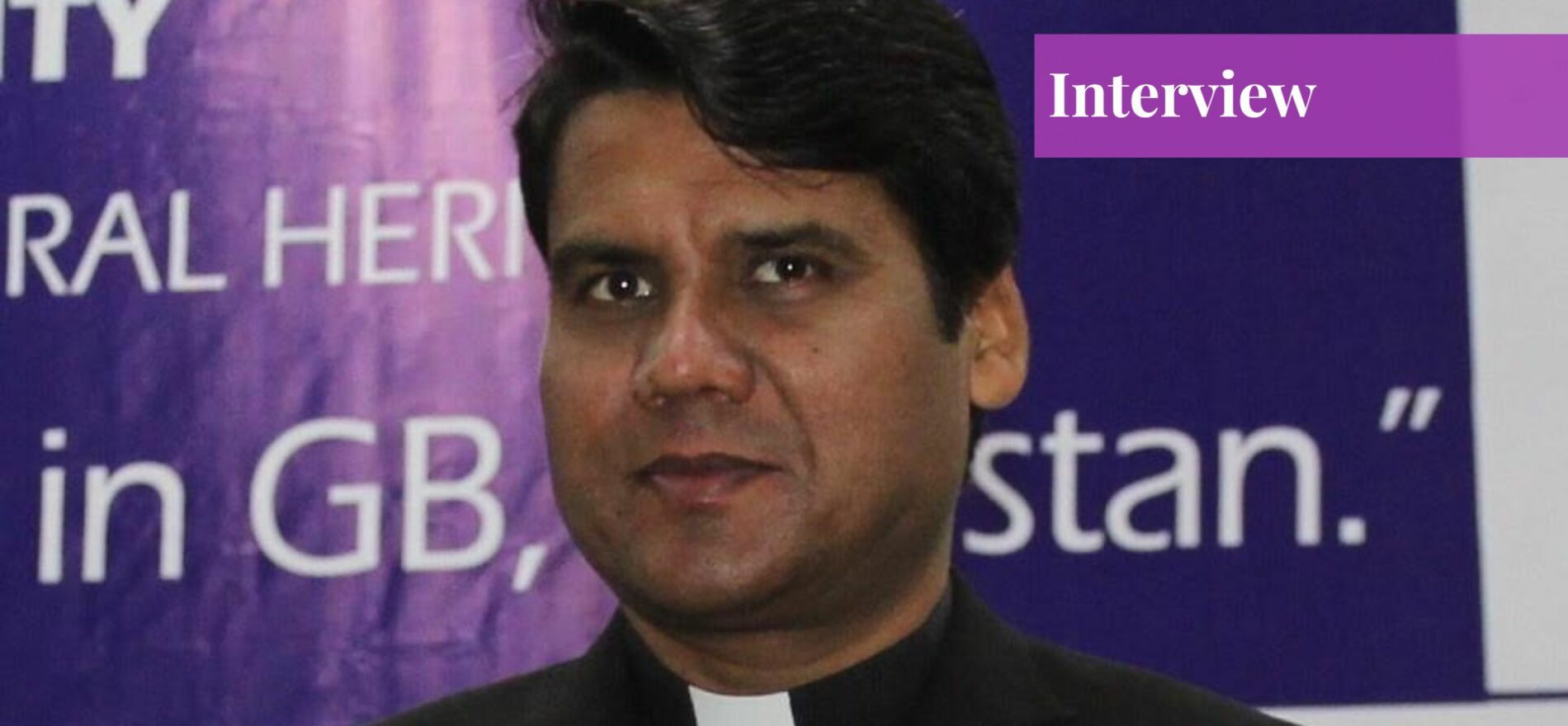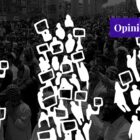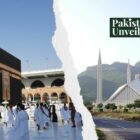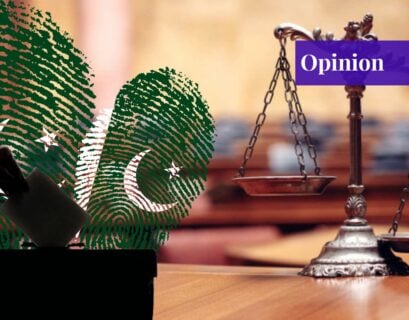- Father Gulshan Barkat, being a Christian historian means you have already chosen a career path that is different from the normal career trends in Pakistan. On top of that, you are also part of a minority community. Does this have a positive or negative impact on your research?
Being a Christian historian in Pakistan has been a great experience for me. It has opened new areas and avenues of research that have never been touched. A paper that I wrote at the Gregorian University, Rome for my license degree in Church History was entitled “History of the Catholic Church in Punjab, Pakistan and its relationship with the British Raj 1858-1888,” one that, before then, had never been explored. Being a Pakistani Christian has not created any trouble for me as far as research on Christianity is concerned.
- Father Gulshan Barkat, your main focus is the subcontinent. Within the subcontinent, was your focus only the Christian history or does your work of field expand over the entire region’s history?
My focus of study is Christianity, particularly the Catholic Church in the subcontinent. As a researcher, you know very well that the more narrowed down your research is, the better research you’re able to do.
- Have the national institutes proven to be resourceful in the course of your study or do you seek help from international study centers?
There are resources available in Pakistan on the subject of ‘Christianity in Pakistan’ but they remain unorganized, non-documented, and non-categorized. For the research, as far as my license paper was concerned, I had better access to the primary sources in the British Library, London, and Archives of Propaganda Fide, Rome than in Pakistan.
I wish to mention here that the Jesuits in Loyola Hall, Lahore, and Christian Study Centre, Rawalpindi have taken an effort to build a good repository of resources. Loyola Hall has good resources kept and maintained.
- During the course of my research, I realized there were many points in the history of Pakistan where Pakistani Christians played a pivotal role in shaping things. For instance, how the three Christian votes decided the fate of Punjab or how SM Burke played a vital role in the Pakistan nuclear program, but we as the public have never once heard of those services in the media, books, etc. What do you think led to this lack of reorganization?
Although there is a spirit of revival in recognition of Christian contribution in Pakistan, some of the reasons for the attitude of non-recognition of Christian contribution in the movement/struggle for and building of Pakistan at the academic, governmental, and social levels as a whole are as follows:
- Increase in religious conservatism in the Islamic Republic of Pakistan, especially during the post-70 period.
- Promotion of the idea that Pakistan was created for the Muslims of the subcontinent, therefore being Pakistani is being Muslim.
- Attempts to Arabize Pakistani society which should have only Muslims.
- Talking about the contributions of Pakistani Christians, keeping aside the sacrifices they made in the struggle for Pakistan and keeping in mind the post-independence era, most of the contribution date back to the early years and gradually start decreasing especially after the 1980s. Is it the lack of acknowledgment by the state or the new minority generation does not have the same sense of patriotism? What else could be the factors according to you that have caused a major brain drain of religious minorities from Pakistan?
This question does not deal only with Christians in Pakistan, but there is overall decadence of intellectual life and brain drain in Pakistan. As far as the Christian community is concerned, they also live in Pakistan and are part of the bigger picture of the brain drain situation in the country. On the societal level, there is an evident attempt to look at every aspect of life through the prism of faith/religion. Faith and reason must go hand in hand.
- Have you ever in the course of your life as a citizen of Pakistan (be it in the early years of your life), felt as if you were held back or not appreciated for your work solely because of your religion?
In my school years in classes IX and X at Government Comprehensive High School, Rahim Yar Khan, I won the first prize two times for the school at the level of Bahawalpur Division in a singing competition (mili nagma). The principal and the teacher for Physical Training (PT) were very supportive and encouraging. They recognized my talent and promoted me to sing for the school. I was respected and appreciated, for I brought a good name to my school. There were one or two teachers who wished and invited me to convert to Islam since I was a promising student.
- What role can the state play in highlighting the contributions of Pakistani Christians or do you consider it satisfactory?
Devising and implementing a curriculum that promotes human values, and roots out discrimination based on religion, race, culture, ethnicity, etcetera.
- In the post-independence (till the late ’70s & early ’80s) Pakistan, what factors do you see that weakened the cohesiveness between the majority & minority religious communities, that even reached levels of attacking, lynching, and extreme discrimination of religious minorities (in cases like Shantinagar, Gojra, throwing of a young Christian couple in a burning brick kiln, etc) and what do you foresee in case of the reconstruction of a Hindu Temple at the sight of Babri Mosque?
First of all, I wish to move away from the categorization of Pakistani citizens into “majority” and “minority” based on religion. This is part of a fundamentalist attitude that was never part of the vocabulary of the Quaid-e-Azam. I answer this question in three points.
- Pakistan should return to the vision of the founder of Pakistan and employ the ‘Republic of Pakistan’ instead, a state which is for all.
- Promotion of quality, broad-minded education at all levels of academia
- Integral training of those who wish to become religious leaders in mosques or madrassas. They must be taught to respect other religions and their worship places. This will be possible if they receive proper education about other religions and visit their places of worship.
- Could you please mention your literary works?
- BARKAT, Gulshan. De Civitate Dei: a basis for interreligious dialogue, in Al-Mushir, 2008.
- BARKAT, Gulshan. Pakistan: Stato e religione in un Paese islamico, in Aggiornamento Sociali no. 05, Maggio 2011, pp. 356-361.
- BARKAT, Gulshan. Chrześcijanie na pustyni i w piwnicy, in Misyjne drogi, 2012, pp.28-29.
- BARKAT, Gulshan. The Edict of Milan and religious minorities in Pakistan, in Historia et Ars, n. 8_Giugno 2013, pp. 16-18.
- BARKAT, Gulshan. Relationship between the East India Company and the Catholic Church, in Al-Mushir, Vol. 55, No. 2, 2014, pp. 76-92.
- BARKAT, Gulshan. A Journey Towards Justice and Peace from the Documents of the Vatican II, FABC, and Beyond, in Al-Mushir, Vol. 56, No. 4, 2015, pp. 179-198.
- BARKAT, Gulshan. Relationship between the British Raj and the Catholic Church in Punjab, in Al-Mushir, Vol. 57, No. 3, pp. 94-117.
- Barkat, Gulshan, The History of Christianity in Pakistan, in Al-Mushir Vol. 58 (2017) No. 3. Christian Study Centre, Rawalpindi, pp. 81-118.
- Barkat, Gulshan, An Historical Overview of Mission in Pakistan, in Al-Mushir Vol. 60, No. 1, 2019, pp. 1-33.
- Translation from English to Urdu: TANNER, Norman. A New Short History of the Catholic Church, Bloomsbury Continuum, 2014.
If you would like us to feature you and your work, please check the Submissions page.


















